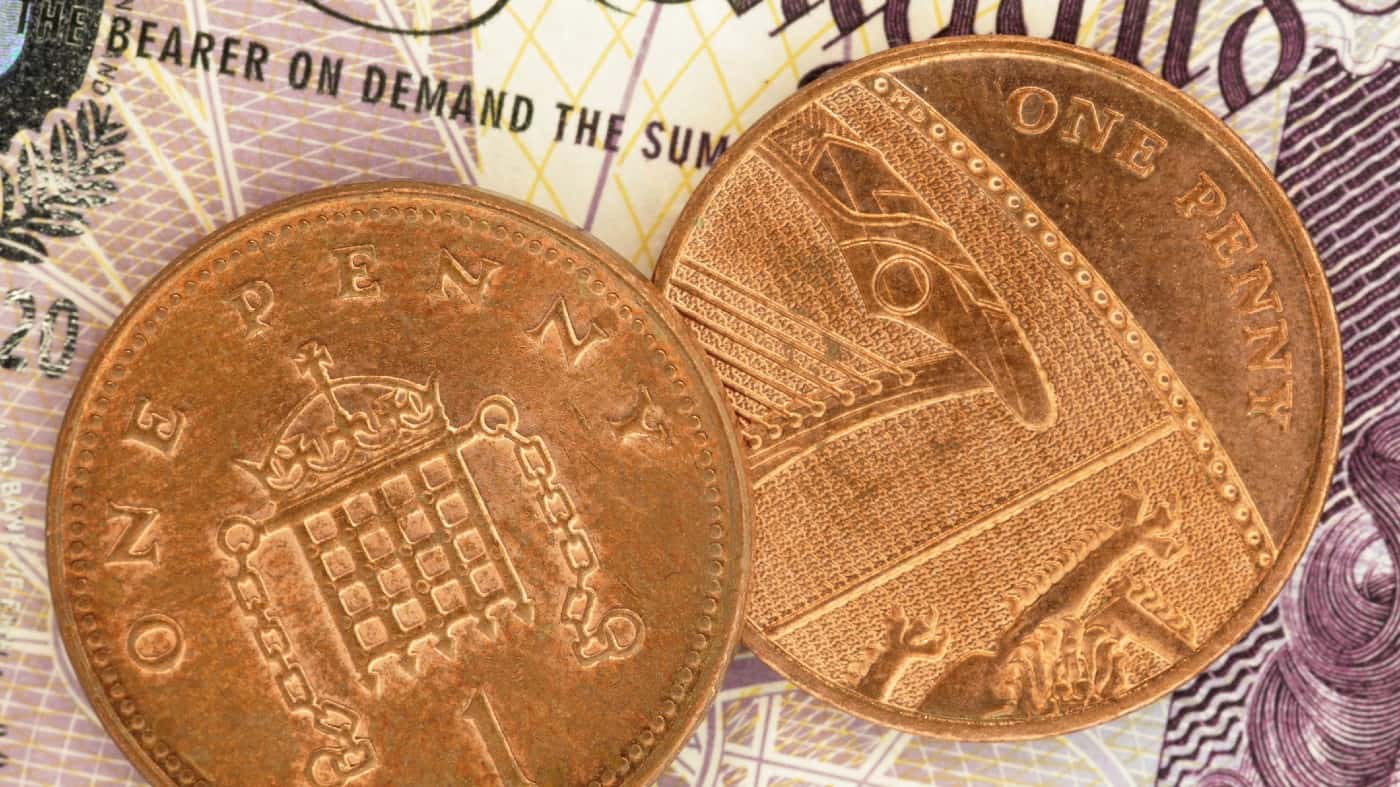It has not been a great few months to be a shareholder in Vodafone (LSE: VOD). Since May, the Vodafone share price has slid by around a quarter, based on its share price when writing this earlier today. Performance over the past year has been stronger, with a 6% gain – but that lags the 29% increase seen in the FTSE 100 as a whole.
If the Vodafone share price continues to slide, could it become a penny share?
Nearly a penny share
At around £1.09, the Vodafone share price is only 10p away from becoming a penny share. But this isn’t the first time that’s happened. At several points last year, the share price fell to within spitting distance of penny share status. The communications giant was a UK penny share for much of the 1990s.
So, if the company does become a penny share, it won’t necessarily be a big shock. I also don’t think it matters when it comes to the attractiveness of the shares from an investment perspective. Simply being a penny share doesn’t necessarily make it harder for a company to operate, unless it wants to raise money in the stock market.
Overall, then, I don’t think being a penny share would necessarily be bad for Vodafone. But it could present me with an opportunity as an investor.
The Vodafone share price looks attractive to me
Despite the lacklustre Vodafone share price performance lately, I think the company looks attractive. It is one of the leading players in the lucrative telecoms space. From the rollout of higher speed digital services to a shift to mixed working, I see demand in this marketplace increasing in coming decades. Vodafone is set to benefit from that.
The company’s strong brand, wide network, and decades of experience should help it maintain a leading position in many markets. That can translate into profits, which could help it pay dividends. Buying it at the current low price is attractive to me – and if it falls to penny share status, that would make it even more attractive.
Already, the Vodafone share price means the dividend yield is over 7%. But that doesn’t necessarily mean the share price has bottomed. I think it could crash to penny share territory if, for example, business performance misses investor expectations. Longer term, though, I see value in today’s Vodafone share price.
Vodafone share price risks
But if the outlook for Vodafone is strong, why has the share price struggled lately?
One reason is its ongoing high capital expenditure requirements. Funding those requirements has eaten into profits. That could continue – or get worse as new technology cycles shorten.
There is also a risk that the dividend could be cut. That happened in 2019. If profits aren’t strong enough, it could happen again. But against that risk is the fact that the current yield is well above the FTSE 100 average. If Vodafone did cut its dividend, by a third for example, the prospective yield would still be around 4.7%. I would still regard that as attractive passive income from my portfolio.








